Blue light, which is emitted by electronic devices such as smartphones, computers, and televisions, as well as energy-efficient light bulbs, can significantly impact your sleep patterns. Here’s How Blue Light Affects Your Sleep.
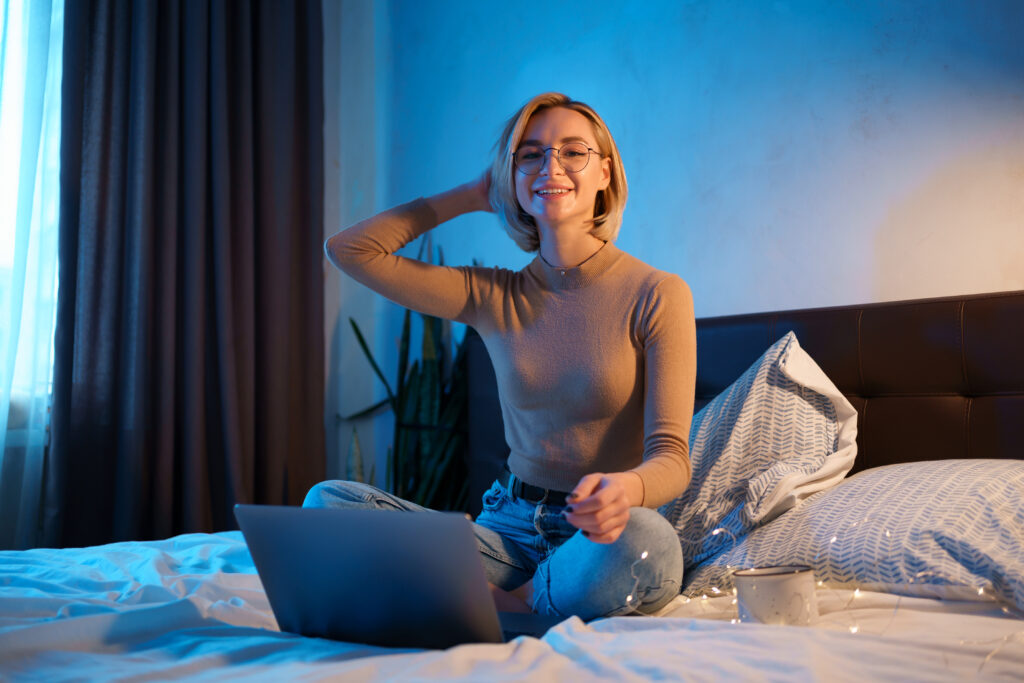
01. Disruption of Circadian Rhythm: Exposure to blue light, especially in the evening and at night, can interfere with your body’s natural sleep-wake cycle, also known as the circadian rhythm.
Blue light suppresses the production of melatonin, a hormone that regulates sleep and wakefulness. This can lead to difficulty falling asleep and disrupted sleep patterns.
02. Delayed Sleep Onset: Blue light exposure can suppress melatonin, delaying the onset of sleep.
This means it may take longer to fall asleep after using electronic devices or being exposed to blue light sources before bedtime.
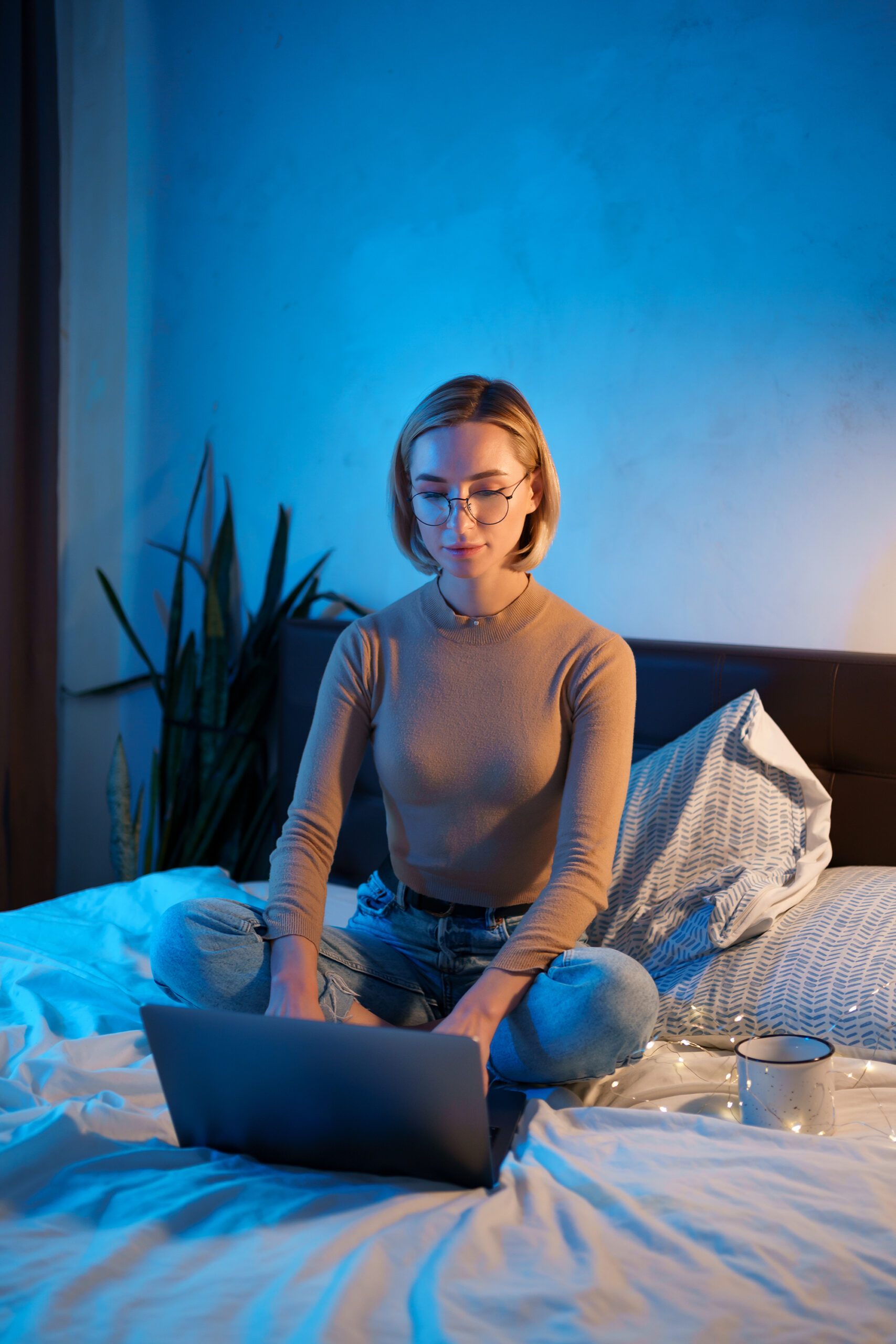
You Can Also Like To Read This Blog:- The Comprehensive Guide To Stop Snoring Naturally
03. Reduced Sleep Quality: Even if you manage to fall asleep after exposure to blue light, the quality of your sleep may be compromised.
Studies have shown that exposure to blue light before bedtime can lead to shallower sleep, more frequent awakenings during the night, and decreased overall sleep quality.
04. Increased Alertness: Blue light exposure can also increase alertness and cognitive function, making it more difficult to wind down and prepare for sleep.
This is particularly problematic when using electronic devices or watching television in the hours leading up to bedtime.
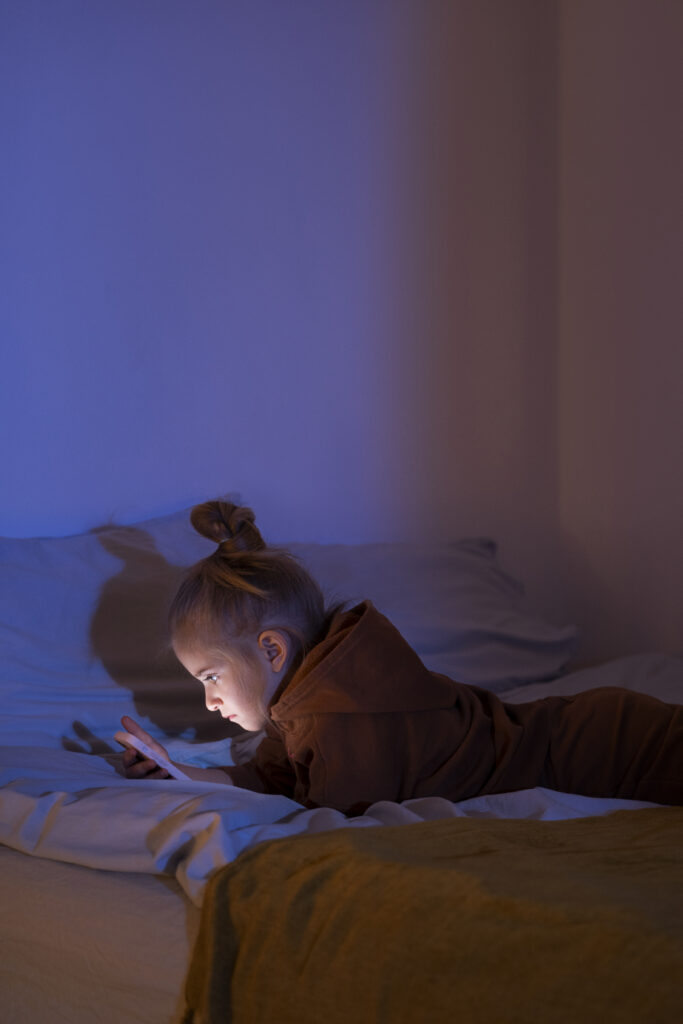
To minimize the negative effects of blue light on your sleep, consider the following strategies.
- Limit Screen Time Before Bed: Try to avoid using electronic devices such as smartphones, tablets, and computers at least an hour before bedtime to allow your body to naturally wind down and prepare for sleep.
- Use Blue Light Filters: Many electronic devices and smartphones offer built-in features such as “night mode” or “night shift,” which reduce the amount of blue light emitted by the screen. You can also use blue light filter apps or install blue light-blocking screen protectors on your devices.
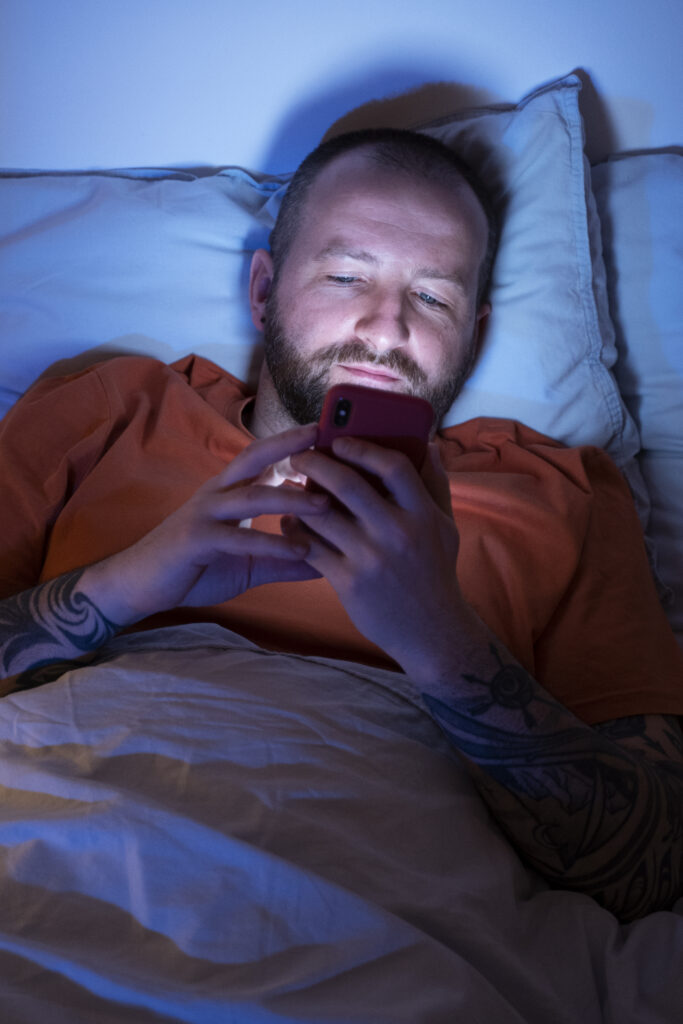
- Adjust Lighting: Opt for warmer, dimmer lighting in the evening to signal to your body that it’s time to start winding down. Avoid bright overhead lights and instead use lamps with warm-colored bulbs.
- Establish a Bedtime Routine: Create a relaxing bedtime routine that doesn’t involve electronic devices, such as reading a book, taking a warm bath, or practicing relaxation techniques like deep breathing or meditation.
By taking steps to minimize your exposure to blue light before bedtime, you can help improve the quality of your sleep and ensure that you wake up feeling more rested and refreshed.

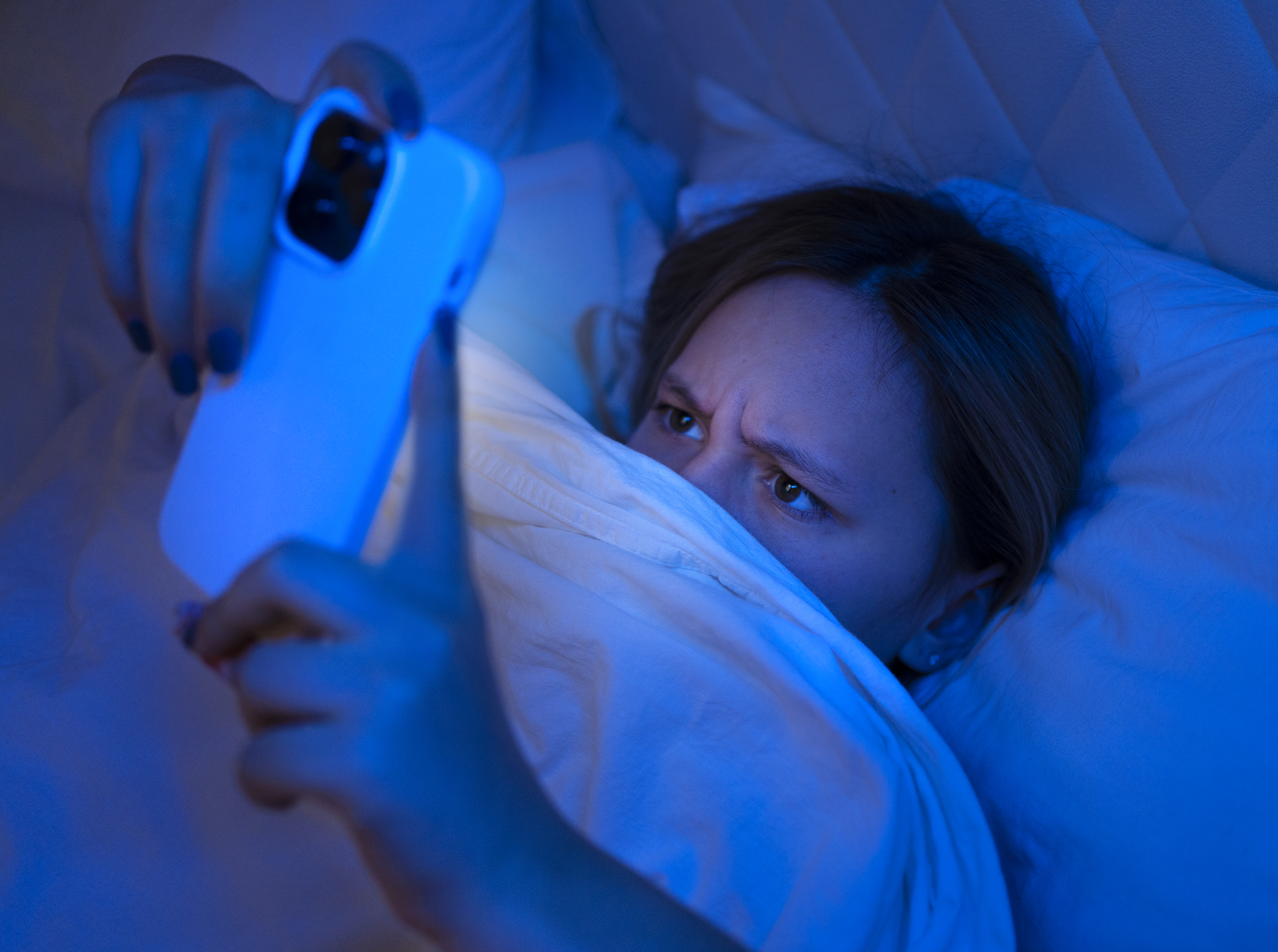
1 thought on “How Blue Light Affects Your Sleep”